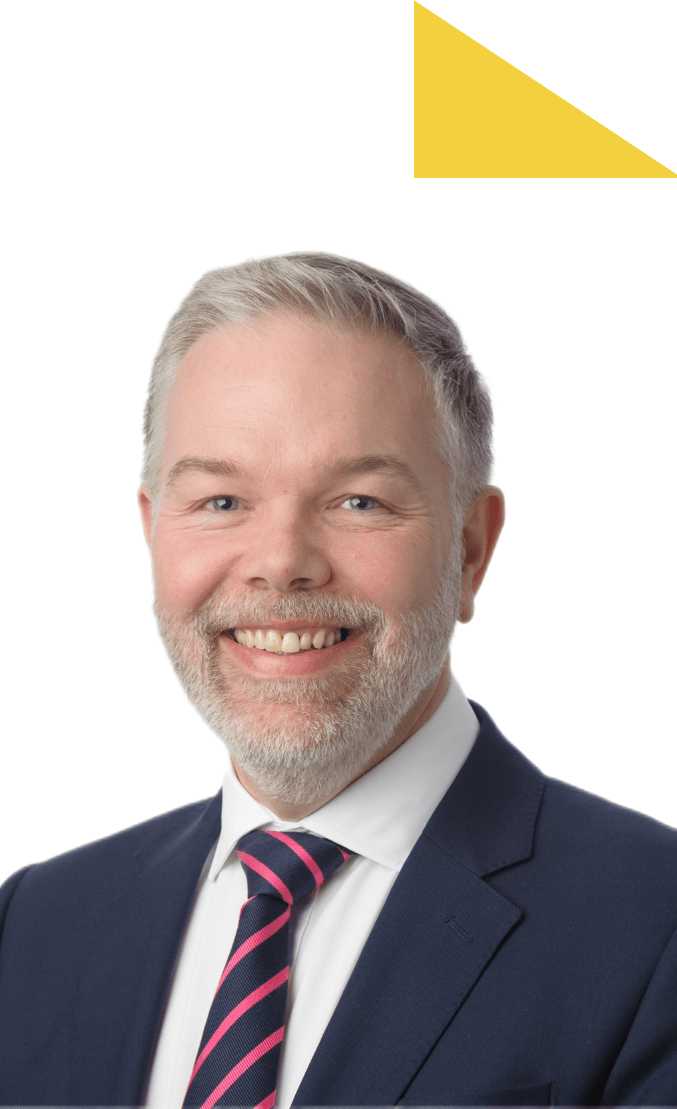
Major life events|Money management
Building a financial future after divorce
The first working Monday of the new year is said to be the busiest day for divorce lawyers but going through a divorce can be an emotional upheaval at any time of the year. Huw Williams examines eight steps you can take to start getting your life in order and planning for the future.
As John Lennon sang, “Life is what happens while you are busy making other plans”. Life is unpredictable and sometimes we can be thrown off course by something we were least expecting. This is often the case with divorce. One minute you’re happily married and planning your life together, the next you are going your separate ways. The end of a marriage can evoke many conflicting emotions that make it difficult to focus and look ahead.
Grief – at the loss of a relationship, your familiar way of life and the dreams and aspirations you shared.
Guilt – over a perceived failure to make it work.
Anger – at a partner’s betrayal.
Fear – of the unknown, coping with changed circumstances and being alone.
There is no quick way off the emotional rollercoaster. The coping process must start by allowing the freedom to grieve while taking the necessary steps to move on. At such a distressing time, you are faced with unravelling all the aspects of your shared life together and it is important not to overlook the financial issues that will inevitably arise. In addition to legal advice, it is recommended that both parties seek professional financial advice at the start of the process.
Here are eight ways you can start to move forward:
- Starting over – The first step is to assess your current financial and family situation. It helps to produce a full disclosure of all assets, including pensions, at the outset. Joint bank accounts will need to be separated. Money for immediate living expenses will need to be arranged. Open discussion will be required on custody arrangements for children, and who will pay for child support and day-to-day expenses through the divorce process. It is also important to check your credit score and ensure you have suitable insurance cover as you go your separate ways.
- Taking control – Choosing to move forward means taking control of those things you can control and not wasting energy on those you can’t. Once you’ve assessed your current situation, you can start prioritising the issues and decisions that are within your control and start considering your life on the other side of divorce – your future opportunities and strengths.
- One becomes two – The money that was supporting one household will now have to stretch to fund two. This may mean adjustments to the standard of living you’re accustomed to, as expenses increase. Divorce is also about ensuring young children are taken care of and supported through the upheaval of separation and change.
- Emotional attachment – Emotions play a large part in how well people adjust to a new life after divorce. Individuals that find it harder to let go of the past will struggle more than those who can look to new possibilities in the future. It is helpful to see it as a transformational period where new plans can be formed.
- Building resilience – Keep focused on what you can control and where you want to get to. Set new goals and take small steps to achieving them. An experienced financial planner can help take the emotion out of the raft of decisions you are faced with at this challenging time. Talking to a financial planner can ease the pressure and fear of the unknown, and help you understand the possibilities for the new life ahead.
- Experienced advice – Having gone through many divorces with other clients, a specialist financial planner can help negotiations by understanding your situation and needs. Using cash flow planning, they can help you visualise what you could have and how it could work for you, and to evaluate settlement offers.
- Communication is key – It always helps if the divorcing parties are both on board with the financial planning process. Usually, one of the partners will have taken more of a lead in financial matters. In these cases, the other partner can benefit enormously from the help, guidance and support of a financial planner through the divorce process.
- An education – Financial planning not only assists with decision making, but it can also help with understanding the short and long-term implications of those decisions. For example, around custody, maintenance, division of assets, current and future income and expenditure, to name just a few.
Untangling finances during divorce is always complex. Decisions made in the heat of the moment can have significant and long-lasting consequences. How much money you will need is never an easy question to answer. But working with a financial planner and developing a personal cash flow plan will go a long way towards showing the lifestyle you could aspire to after divorce and how you can achieve it.
Different scenarios can be modelled to help make the best and most informed decisions. For example: should you keep the marital home; what would be the best option for the pensions; and what are the tax considerations? At such a challenging time, cash flow planning can provide clarity and peace of mind both before and after a divorce settlement.
Having a financial plan can help restore your faith in the future and create a new beginning.
Clients of Nedbank Private Wealth can get in touch with their private banker directly to understand how wealth planning can help them achieve their financial goals and objectives, or call +44 (0)1624 645000 to speak to our Client Services team.
If you would like to find out more about how we can help you with wealth planning support, please contact us on the number above or via our Contact us page.
Any examples of investments and structures used are for illustrative purposes only. This article does not constitute an invitation or inducement to buy any financial investment or service. None of the content constitutes advice or a personal recommendation. Individuals should seek professional advice, based on their jurisdiction and personal circumstances, before making any financial decision.
Author

Huw Williams
Senior Private Banker , London
Huw joined the London team in 2017 from Duncan Lawrie and has over three decades of private banking experience. Having started his career with NatWest, he spent 14 years at Grindlays Private Bank before joining Butterfield Private Bank for 12 years in 2004.
As a trusted adviser to his loyal and long-standing high-net-worth client base, Huw is passionate about delivering exceptional client service dovetailed with a full range of holistic private banking services. These include identifying wealth management requirements and offering integrated banking, lending, investment management and fiduciary services.
He is a Chartered Wealth Manager and a Chartered Fellow of the Chartered Institute for Securities & Investment.
RELATED NEWS
You may also be interested in the following Insights
Sign up for our updates
Stay up to date with the latest news, insights, and opinions from Nedbank Private Wealth by signing up to our newsletter. You can also register to be invited to our virtual events and hear directly from a wide range of experts. Sign up below. You can unsubscribe at any time.













